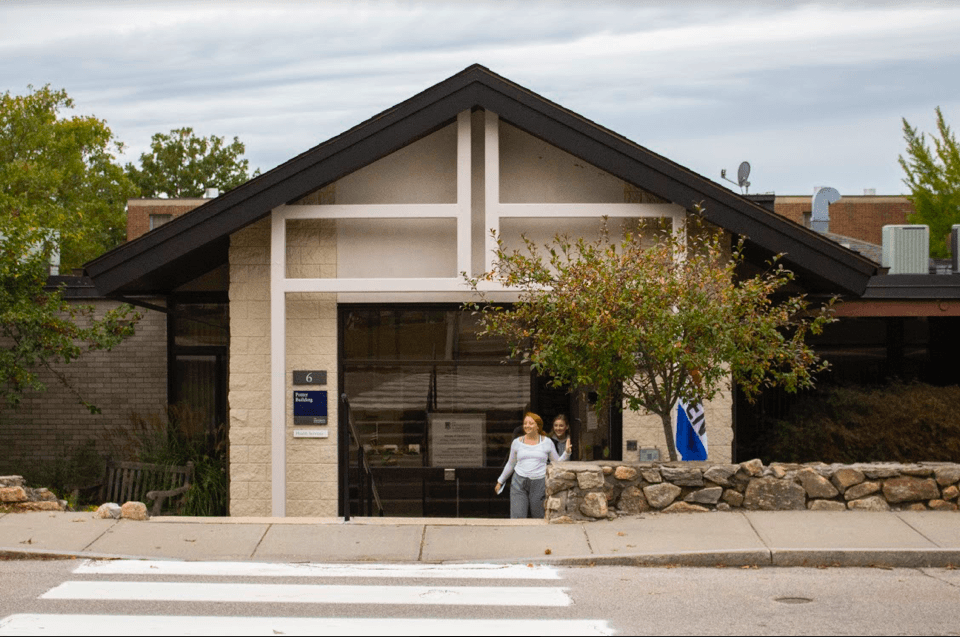Hoping to create a more inclusive campus, Health Services dissolved the Women’s Clinic. Photo by James McIntosh.
This semester, the University of Rhode Island’s Health Services merged the Women’s Clinic with the rest of the facility in an effort to create a more inclusive environment.
Ellen Reynolds, the director of Health Services, said that the push to dissolve the clinic was because of their desire to be more gender inclusive and follow the national trend in college health.
“We don’t have a men’s clinic, we don’t have a transgender clinic,” said Reynolds. “We integrate that care throughout the building and we felt we could do the same thing here with women’s care.”
Reynolds explained that no transgender student had ever been denied access to the Women’s Clinic. However, she said that it wasn’t ideal for students who are transitioning to be outed by sitting in a Women’s Clinic waiting room.
“This is more like a true medical home,” said Dr. Christopher Nasin, the medical director at Health Services. “We’re not just looking at people by body part, we’re just taking care of the whole person.”
Though the Women’s Clinic was dissolved, it doesn’t mean women’s care within the facility has been eliminated. In fact, Reynolds said they bought more Gyn tables to have available in different parts of the building.
“We have the same providers, same resources, same individuals doing the same good work,” said Reynolds. “It’s just that now we don’t have an exclusive area of the building where that work is being done.”
Penny Rosenthal, the director of the Women’s Center said that she was very excited about the opportunity to make a more inclusive care facility. “It’s more welcoming for the non-binary,” said Rosenthal.
Rosenthal also explained that the Women’s Center at the top of campus used to receive a lot of calls from people trying to make appointments with doctors at the Women’s Clinic. She’s happy there will no longer be confusion between the two resources on campus.
The Women’s Clinic used to be located at the end of the hall to the right when first entering Health Services. There was a separate check-in for Women’s Clinic patients on that end of the building. Now there is one central check-in and waiting area for students.
Nasin said that despite having one central check-in and no longer having a private one for women’s care, it won’t be uncomfortable for students.
“We take a lot of pride in making sure students who come here for care feel comfortable and able to disclose what they need and not in a public area,” said Nasin.
Reynolds also pointed out that since there is no separate clinic, the care you need is no longer identified depending on where you are in the building.
“In the [new] integrated model, if you come in for a pap smear, a mental health issue or a cold, no one has any idea,” said Nasin. “We take care of any of those things in any part of our building.”
In making this change, Health Services reached out to the Women’s Center and Gender and Sexuality Center, both located at the top of campus. Reynolds said they wanted to make sure these two organizations on campus understood the rationale behind the decision to dissolve the clinic.
According to Nasin, there are plans to make a larger integrated care building in a few years. This building will integrate the counselling center and health center into one facility. Nasin also said that students will be involved, to some degree, in the planning process.
“Again, no matter what you’re coming in for, there’s no stigma,” said Nasin. “We’re going to take care of you as a person. What do students feel comfortable with? What do they want? We want to do what makes sense for our students.”
This decision had been talked about for close to five years and was finalized over the past year, according to Reynolds.
“We talked to all of our peer institutions, we talked to our colleagues across the American College Health Association,” said Reynolds. “We looked at best practices. We heard that almost everybody else had already absolved their gender exclusive clinics.”

